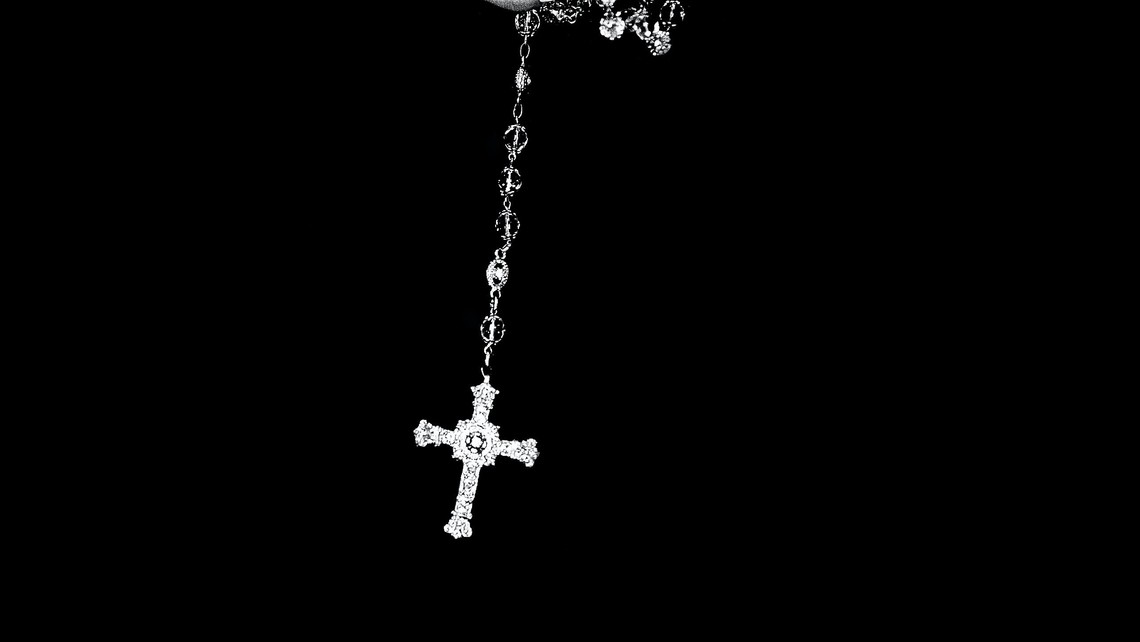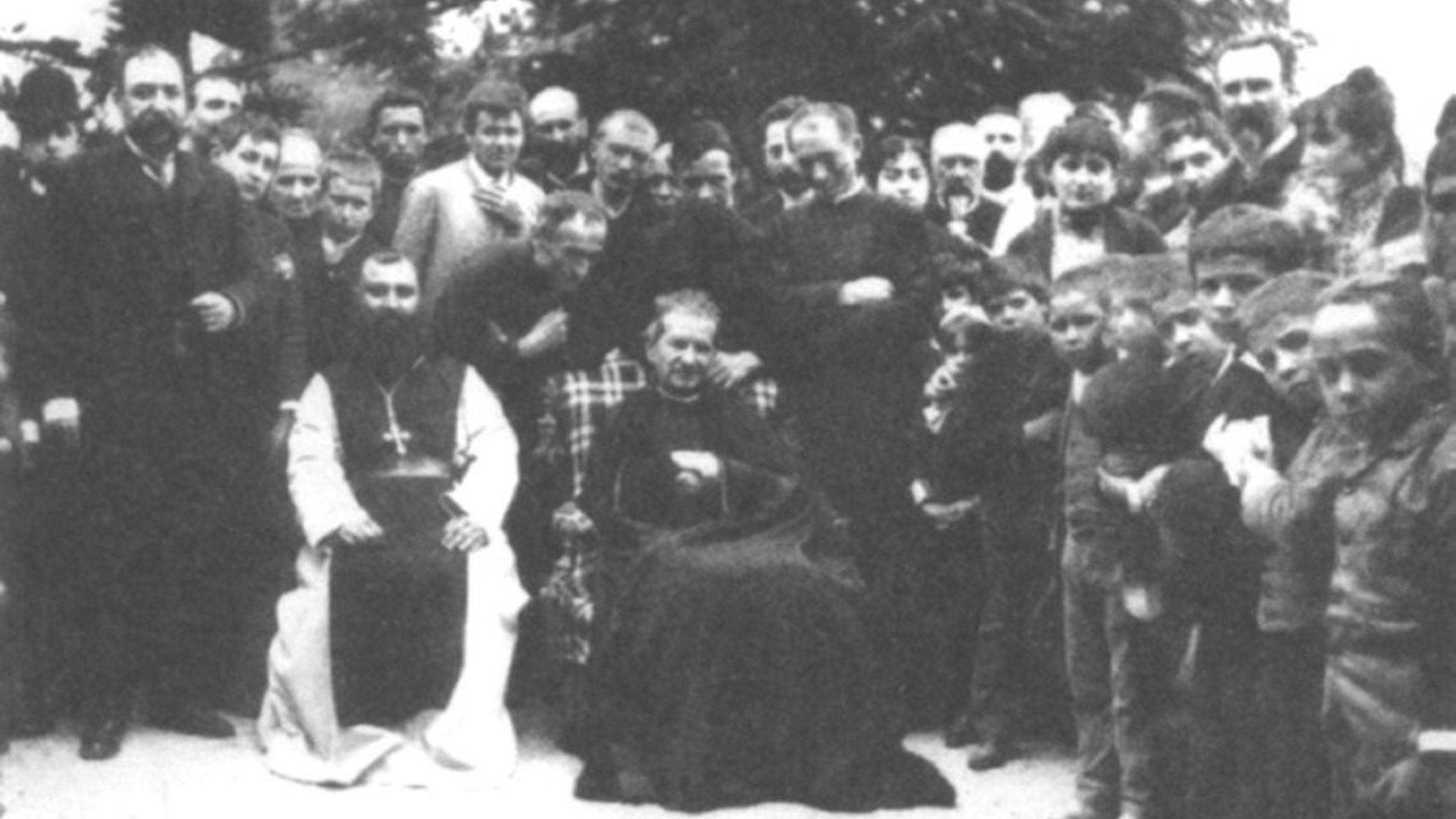
The moment I saw their eyes open, a beautiful encounter occurred when my eyes became fixated on theirs. There was an immediate sense of awe and wonder as they came into this world and proclaimed through their first breath that the first stage of their journey had begun. As the birth of each of my living children took hold of me and forever changed my supposed Catholic worldview at the time, reality set in that now my entire life is predicated on the nurturing and nourishment of both my beloved bride and our children.
Unbeknownst to me, the entire gestational process took on a spiritual reality because of the responsibility ahead toward the immediate care of these souls. As my children matured physically and spiritually in mind and body, the development of their souls, intellect, and will took center stage. Their relationship between faith and reason began to define their view of the world with and without God. This is where the demonstrative practice of the Catholic faith in association with a specific language of faith[1] placed greater urgency on the spiritual and moral development of my children in Jesus Christ.
First Importance
St. Paul brings to light the notion of salvific urgency when he describes of first importance the need to deliver the content of the kerygma meaning that Christ died for our sins in accordance with the Scriptures, that he was buried, that he was raised on the third day in accordance with the Scriptures and that he appeared to Cephas, then to the twelve.[2]
Within this discourse, the brethren are reminded by St. Paul of the urgency to profess the kerygma- the salvific message of Jesus Christ. St. Paul describes this entire sequence as “first importance” because it serves as the basis for the uniqueness of the Catholic faith centered on Jesus Christ, second, it introduces the opportunity for personal conversion, and third, it provides the opportunity for the person to begin living a Christian lifestyle centered on Jesus Christ and what he taught.
Another example of this “first importance” which leads to a confession of faith is found in St. Paul’s letter to the Romans where he says:
because, if you confess with your lips that Jesus is Lord and believe in your heart that God raised him from the dead, you will be saved. For man believes with his heart and so is justified, and he confesses with his lips and so is saved.[3]
Both passages from St. Paul remind us of the necessity to introduce a specific language of faith that echoes the Paschal Mystery as the necessary path toward salvation. The premise behind this Paschal language is that the intention is to help someone freely engage in a metanoia of faith which means having the person engage in a radical shift of his current existence toward something greater.
The Language of the Cross as First Importance
The radical shift toward something greater as associated with metanoia serves as an important pedagogical method, I argue in the religious development of any human being especially in children. If a child is to be intimately raised in the Catholic faith, then the use of language especially the language of the Cross, the death and resurrection of our Lord is essential in the formation of a child’s faith and the strengthening of his Catholic worldview. As the Catechism reminds us:
For as by one man’s disobedience many were made sinners, so by one man’s obedience many will be made righteous.” By his obedience unto death, Jesus accomplished the substitution of the suffering Servant, who “makes himself an offering for sin,” when “he bore the sin of many,” and who “shall make many to be accounted righteous,” for “he shall bear their iniquities.” Jesus atoned for our faults and made satisfaction for our sins to the Father.[4]
The following account provides further evidence of the first Importance of our language of faith:
It is love “to the end” that confers on Christ’s sacrifice its value as redemption and reparation, as atonement and satisfaction. He knew and loved us all when he offered his life.447 Now “the love of Christ controls us, because we are convinced that one has died for all; therefore all have died.” No man, not even the holiest, was ever able to take on himself the sins of all men and offer himself as a sacrifice for all. The existence in Christ of the divine person of the Son, who at once surpasses and embraces all human persons and constitutes himself as the Head of all mankind, makes possible his redemptive sacrifice for all.[5]
The language of the Cross is I argue an essential approach in strengthening the faith of our children. Exposing them to the reality of the Paschal Mystery and specifically the death of our Lord will bring to light the significance of the Incarnation, and how the Word of God assumed human form through the Son. And that through the Son came to conquer sin and death and open the gates of heaven through baptism if we freely choose to follow the teachings of Jesus Christ and embrace the redemptive cross of Christ intimately bound in our baptism.
If the first importance of the faith is understood to mean the proclamation of the salvific events of the life of Jesus Christ and their everlasting effect on us as disciples of Jesus Christ, then this is the language that should become normative in every household of faith.
On the Way of the Cross, you see, my children, only the first is painful. Our greatest cross is the fear of crosses. We have not the courage to carry our cross, and we are very much mistaken; for, whatever we do, the cross holds us tight. We cannot escape from it. What then, have we to lose? Why not love our crosses, and make use of them to take us to heaven.
St. John Vianney






